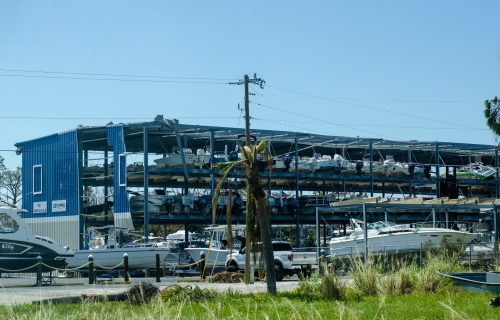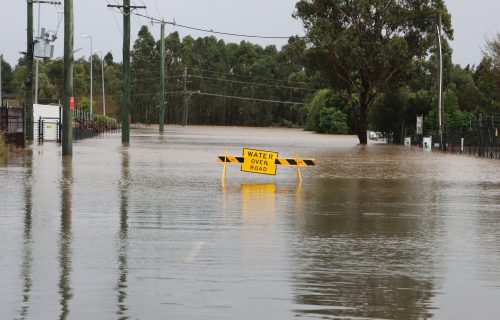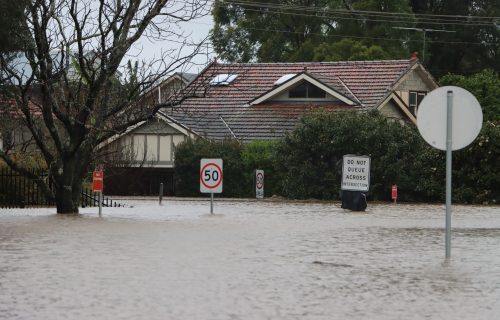







Public Adjusters are licensed insurance professionals who represent you, the policyholder, in the event of a loss or damage. They are required to follow strict regulations set by the state they operate, ensuring their compliance with local standards and laws.
In the state of Florida, for example, becoming a Public Adjuster is a comprehensive process. They must complete an insurance course, pass a state-administered exam, and undergo fingerprinting and background checks. A $50,000 bond is also necessary. After meeting these criteria, they must then gain practical experience by apprenticing under a licensed Public Adjuster for a year. All these measures are in place to ensure you’re working with a qualified and trustworthy professional.
Property insurance policies are designed to protect you from a range of potential losses. While specific coverages may vary based on the individual policy and provider, here are the types of coverages typically included:
Property insurance encompasses various types of coverage to protect both individuals and businesses from potential risks. Property Coverage is an essential aspect of any policy, safeguarding physical assets such as buildings, equipment, and inventory from risks like fire, theft, or natural disasters. Another common type is Liability Coverage, which provides financial protection in the event of legal responsibility for injury or damage to others’ property. Additionally, Business Interruption Coverage helps mitigate financial losses caused by business disruptions, while Equipment Breakdown Coverage protects against unexpected breakdowns of vital equipment. Extra Expense Coverage assists in covering additional costs incurred to continue business operations after a covered loss. These different property coverages offer tailored protection to property owners, ensuring peace of mind and financial security.
It’s always crucial to read your policy thoroughly to understand what is and isn’t covered. If you have any doubts or questions about your policy’s coverage, don’t hesitate to reach out to Pivot Claims. Our team of professionals is always ready to assist you with understanding your policy and ensuring you receive the compensation you deserve.
Experiencing a claim denial can be both disappointing and frustrating. However, it’s important to remember that a denial isn’t the end of the road. There are steps you can take, and Pivot Claims is here to help.
If your claim is denied, the first step is to understand the reasons behind the denial. Your insurer should provide a detailed explanation. This could range from a lack of coverage for the particular event to discrepancies in the documentation, or even missed deadlines.
This is where a public adjuster like Pivot Claims comes into play. Our experienced team can review the insurer’s explanation, analyze your policy in detail, and help determine if the denial was justified. If we find grounds to dispute the denial, we will work diligently to prepare a robust appeal, including gathering the necessary documentation and evidence to strengthen your case.
Our experience with insurance carriers allows us to understand the nuances of how claims are handled by the insurer. Our approach is to provide the insurance company with an extensive claim report that details every requirement needed in order to extend coverage. This approach allows us to receive maximum compensation and ensure your claim does not go to litigation.
Your Pivot adjuster will work exclusively in your favor, utilizing their expertise to maximize your claim settlement and guide you through the complexities of the insurance process. This is crucial because the insurance company’s adjuster is employed by the insurance company and may not have your best interests at heart.
Yes, you can make temporary repairs to prevent further damage. It’s recommended to document the damage by taking pictures or videos before making any repairs. Before proceeding, we advise you to contact Pivot Claims to ensure that your actions won’t negatively impact your claim. Additionally, remember to keep all receipts for the supplies and repairs for reimbursement purposes.
Before proceeding with hiring a contractor, we recommend reaching out to Pivot Claims for guidance. While storm-chasing contractors can be efficient in handling extensive damage during a catastrophe, it’s important to be cautious. Some contractors may be scam artists who perform subpar work and swiftly depart with limited liability. By contacting us, we can assist in determining the credibility and reliability of the contractor in question.
No, your Insurance Agent will not be upset with you for using a Public Adjuster. In fact, Insurance Agents are often unaware of a claim unless the policyholder notifies them. Insurance Agents are valuable partners to us, and they frequently refer their clients to us when the insurance company fails to provide adequate compensation, leaving their customers dissatisfied. As Agents are prohibited from representing policyholders directly, they recognize the benefit of involving a Public Adjuster to advocate on your behalf.
We have extensive experience representing policyholders across different types of property damage claims. Our services cover both Commercial and Residential properties. We handle claims related to various events such as Wind, Water, Fire, Flood, Hail, Vandalism, and more. Our specialization extends to catastrophic claims arising from hurricanes as well as day-to-day damages. Our focus is on providing comprehensive assistance and guidance throughout the claims process.
The time it takes to settle a claim can vary depending on several factors, primarily the efficiency of your insurance company. During the negotiation phase, which can range from a few days to a few months, our adjusters maintain regular contact with your insurance company via phone and email to monitor the progress of your claim and ensure it is being processed in a timely manner. However, in the case of a catastrophe like a hurricane, the processing time may be significantly delayed due to the high volume of claims being filed. Typically, a non-catastrophic residential claim is resolved within 90 days, while a complex multi-million dollar commercial property catastrophic claim may take up to two years to settle. Each claim is unique, making it difficult to provide an exact timeframe. Additionally, if you have a claim with Pivot, you can conveniently check the status of your claim by visiting our CLAIMS STATUS page, available 24/7.
Before reaching out to your insurance company, we recommend contacting us first. There are certain unintentional statements you might make that could potentially lead to your claim being denied. Our expertise and guidance can help you avoid these pitfalls. In the case of a widespread catastrophe or natural disaster that affects multiple individuals, your Public Adjuster may advise you to proceed and report the claim yourself. This process typically involves a straightforward online form or an automated call that doesn’t involve the usual extensive questioning from the insurer. By consulting with us beforehand, we can ensure you take the right steps and provide you with the necessary assistance to navigate the claims process successfully.

Certainly! We specialize in helping individuals like yourself whose claims have been denied. Our first step is to thoroughly assess the damages and carefully review your policy to determine if your claim is indeed covered. This initial process is straightforward, completely free of charge, and comes with no obligation on your part. Our goal is to provide you with the necessary support and guidance to get your claim paid.
Our focus is on maximizing insurance payouts for our clients and providing dedicated advocacy throughout the process. According to a government report by OPPAGA, the expertise of Public Adjusters has resulted in average insurance payout increases of 747% for policyholders. While individual outcomes may vary, our commitment remains unwavering.
It’s important to note that at Pivot Claims, we operate on a contingency basis, meaning we don’t receive any compensation unless we are able to secure a higher claim amount for you. Our unique approach ensures that we work diligently on your behalf, aiming to secure the maximum compensation possible for your damages.
Insurance mediation is a process designed to address conflicts that arise in certain insurance claims. It involves the insured individual and the insurance company coming together to resolve the dispute. In this process, each party reviews its evidence and presents its arguments regarding the claim. While the insurance company is typically represented by a spokesperson, it is crucial for the policyholder to have their own representative to effectively communicate their position. It’s important to note that attending mediation without proper representation can lead to unforeseen expenses. The mediation takes place at a specified time and location where both representatives work collaboratively to reach a mutually acceptable settlement. The aim of insurance mediation is to facilitate a resolution that satisfies both parties and avoids the need for costly and time-consuming litigation.
When it comes to insurance claims, understanding the difference between Public Adjusters and regular Insurance Adjusters is crucial. Insurance companies have their own adjusters who assess claims for the company’s benefit, while Public Adjusters exclusively serve the policyholder. Public Adjusters work directly for you, advocating for your best interests throughout the claims process. They undergo specialized training and licensing, ensuring they possess the expertise needed to navigate complex situations effectively.
Regular Insurance Adjusters, such as Staff Adjusters or Independent Adjusters, may have experience but are not required to complete the same level of training as Public Adjusters. If a Staff or Independent Adjuster transitions to become a Public Adjuster, they must meet the stringent requirements and relinquish their current adjuster license. Choosing a Public Adjuster ensures you have a dedicated advocate solely focused on protecting your rights and maximizing your claim’s potential.
The decision to drop a policyholder or increase insurance rates lies within the discretion of the insurance company. They can choose to drop you or raise your rates based on various factors, except for personal discrimination. Instances where you may be considered a “high-risk” customer or where negligence is involved, such as leaving an iron on and causing a fire, can lead to these actions. It’s important to note that hiring a Public Adjuster is not likely to impact this outcome.
Ultimately, insurance companies have the authority to make decisions regarding policy continuation and rate adjustments, but utilizing a Public Adjuster can help you navigate the claims process and advocate for a fair resolution.
Hiring your own adjuster increases the likelihood of obtaining a fair settlement for your damages by leveraging their expertise to assess the full extent of your losses and skillfully negotiate with the insurance company.
Unlock your insurance claim potential. Reclaim your home. Ignite your business. Safeguard what’s rightfully yours. Call Pivot today!
With a staggering 86% of insurance claims resulting in underpayment, navigating the intricate process can leave policyholders feeling overwhelmed. That’s why we’re here, ready to champion your cause and ensure you receive the fair treatment you deserve.
We empathize with the immense stress that comes with property damage. That’s why we shoulder the burden of communication and negotiation with your insurance company, allowing you to breathe easy and focus on what matters most to you.
Fluent in the intricate language of insurance policies, we possess an in-depth understanding of the claims process, including the strict timelines that insurance companies must adhere to. Rest assured, we’ll expedite your journey toward resolution with precision and efficiency.